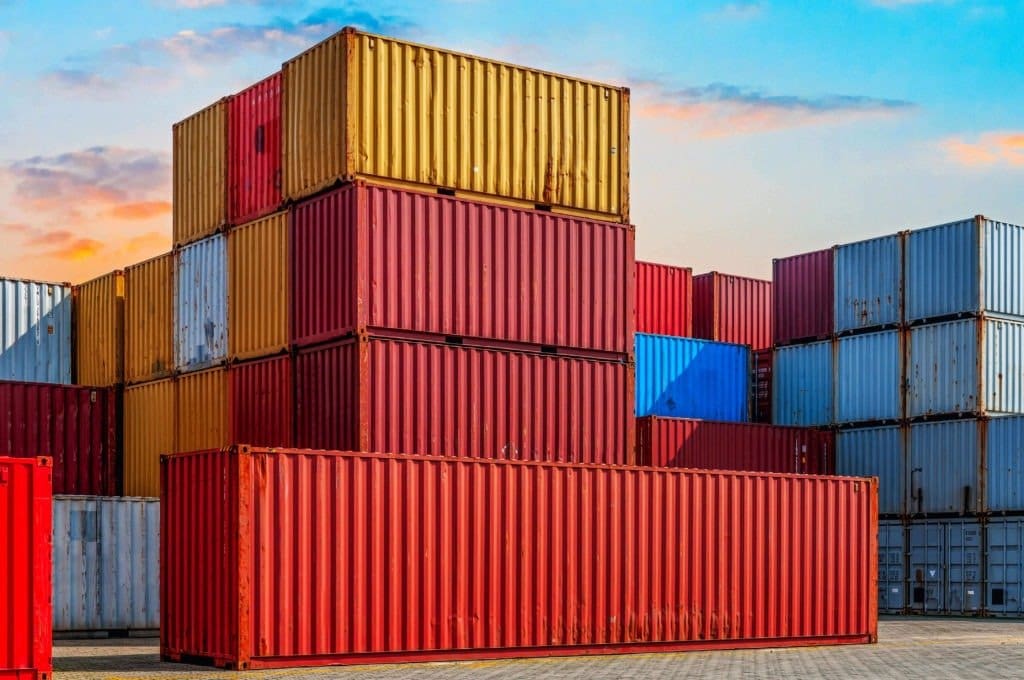Shipping containers were originally built for one tough job—transporting goods across oceans in harsh marine conditions. After about 10–12 years of service, steamship lines retire these units and sell them to trusted dealers like Container Sales Group, where they’re repurposed for storage, building projects, job sites, and residential use. Their rise in popularity throughout the 1990s and early 2000s came from one key advantage: durability. A well-maintained shipping container can last for decades on land.
Earlier versions of containers—before the adoption of Corten steel in the 1950s—were made from wood, aluminum, and mild steel. These materials were far more vulnerable to moisture, pests, and corrosion, which meant they aged quickly and required frequent repairs. The introduction of Corten steel transformed the industry. Its unique weathering properties allow the steel to form a stable, protective layer when exposed to the elements, dramatically improving lifespan and structural integrity.
Even though Corten steel is specifically engineered to resist corrosion (and is used to build bridges, architecture, and outdoor structures), regular maintenance is still essential—especially in climates with high humidity, road salt, snow, or pollution. Simple steps like cleaning dirt and debris, inspecting for scratches or exposed metal, checking door seals, and addressing minor rust early can significantly extend your container’s life. With basic upkeep, your container stays protected, secure, and functional for many years—making it a smart long-term investment.

Shipping Containers a Long-term Investment Opportunity
Overall, while purchasing a shipping container may require an upfront investment, its versatility, durability, cost-effectiveness, and sustainability benefits can make it a worthwhile potential investment in various ways.
- Versatility: Shipping containers can be repurposed and used for various ways or for different purposes. Such as they can be converted into a storage unit, a temporary or permanent housing structure, an office space, a retail store, a restaurant, or workspace. Particularly for industries such as construction, retail, hospitality, events, and emergency relief. It allows individuals and businesses to creatively adapt the container to meet their specific needs, whether it’s for commercial use, residential purposes, or temporary installations. They are standardized in size and can be easily stacked and transported. This versatility means that the container can serve multiple functions over its lifetime, potentially providing a return on investment through rental income or cost savings compared to alternative solutions.
- Durability: Shipping containers retain its value over time and provide a long- term asset since they were built to withstand the rigors of marine transport, making them extremely durable. With proper maintenance, a shipping container can last for decades,
- Cost-effectiveness: Compared to traditional construction materials, purchasing a shipping container is often more cost-effective when modifying or customizing any project. This cost-effectiveness can result in savings for the buyer and increase the potential return on investment.
- Market Demand: There is a growing demand for repurposed shipping containers for residents and for various industries. With the awareness of their benefits they can therefore capitalize on this growing demand, potentially leading to appreciation in value over time.
- Sustainability: Repurposing shipping containers for construction and building is often considered a sustainable practice, as it reduces waste and carbon emissions associated with traditional building materials. As environmental concerns become more prominent, the demand for sustainable building solutions, including shipping container architecture, is expected to increase.
Ready to purchase a shipping container? Reach out today to get a quote from the best in the industry!

How to Maintain Shipping Containers
Lubricate the Container Hinges
When a container sits unused for long periods, the door hinges can become stiff. Applying a light lubricant helps the doors open smoothly and prevents long-term wear. Here’s a helpful video we created showing the exact product many of our customers use to maintain their hinges. Here is a video we put together with a product our customers use to help maintain the hinges.
Inspect the Ground and Keep the Container Level
If your container was placed on soil, gravel, clay, or even older asphalt, it may settle over time. This can cause the frame to twist slightly—making the doors difficult to open and close, especially on longer 40 ft containers. If settling occurs, you can re-level the unit using a jack and place wood blocks, cement blocks, or railroad ties underneath. To avoid issues from the start, we recommend placing your container on a stable, well-drained surface.
Keep the Doors Closed When Not in Use
Closing the doors fully helps keep rodents and excess moisture out. This prevents floor rot and keeps your container clean, secure, and weather-tight.
Remove Debris, Water, or Ice From the Roof
Even though containers are made from weathering Corten steel, standing water, tree branches, or heavy snow can create unnecessary stress and lead to rust. After storms or seasonal changes, sweep off debris and remove any pooling water to protect the roof panel.
Inspect and Touch Up Any Surface Rust
Small scratches or paint chips can expose raw steel and create surface rust over time. Sand the spot lightly, apply a rust-inhibiting primer, and repaint with marine-grade or container paint. Addressing rust early prevents it from spreading.
Check Door Gaskets and Weather Seals
Over time, rubber gaskets can compress or crack, reducing how weather-tight your container is. Inspect the seals around both doors annually and replace them if you notice gaps, dry rot, or brittleness.
Prevent Condensation and Moisture Build-Up
If you’re storing household items, paper goods, tools, or inventory, moisture control matters.
You can reduce condensation by:
• Adding passive vents
• Using moisture absorbers (DampRid, desiccants, etc.)
• Ensuring proper airflow inside
For customers in humid climates, ventilation makes a big difference in long-term performance.
Improve Drainage Around the Container
Make sure water flows away from your container. If rainwater consistently pools around the base, this can increase rust on the bottom rails. Consider grading the ground or adding gravel to improve drainage.
Conclusion
By staying on top of routine maintenance, you’ll protect your container’s value, prevent avoidable repairs, and extend its lifespan for years. Whether you’re storing equipment, building out a project, or using your container on a jobsite, a little attention goes a long way.
If you’re ready to invest in a high-quality New or Used Shipping Container, call Container Sales Group at 708-639-4783. Our team will help you choose the right unit and ensure it lasts.
